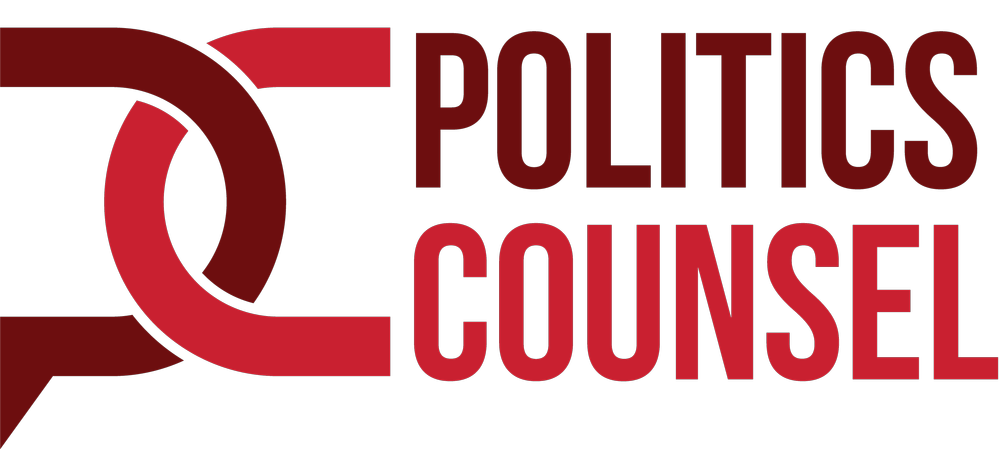BY Mark R. Weaver
There's no government limit on how many hours a day you can stand on a street corner holding a sign encouraging people to vote for your favorite political candidate. The need for sleep, food, or work might intervene but—fear not—the guardrails on government power laid out in the First Amendment mean no bureaucrat can stop you from devoting all of your free time to this kind of political advocacy.
So, why should government be empowered to outlaw you from donating all or most of your money to that same favored candidate? It shouldn't. Red states like Utah and Alabama allow unlimited individual contributions to candidates for statewide office. The same goes for blue states like Oregon and Virginia and swing states like Pennsylvania and Missouri. But the federal government limits donations to a presidential campaign to just $3,300.
The U.S. Supreme Court has twice ruled that political donations are a form of protected free speech. A donor with a dollar and one with a million dollars should have the same, co-equal right to express political beliefs without being silenced by an arbitrary limitation that we wouldn't dare impose on other forms of political advocacy.
When it comes to fueling campaigns, prosperous Americans typically have more money to give while retired people usually have more time to volunteer. Neither group should be discriminated against—no matter what candidate they support.
The founders who sparked the American experiment considered this. They knew that the ability to donate freely could be a check against mob rule, something they viewed with concern. Lifted by more financing, minority opinions can allow for a more robust debate where Americans can consume all sides of a political issue or candidacy and decide for themselves.
Some have suggested that the Constitution should be amended to silence some political speech through the steel fist of government coercion, with the ultimate punishment for those who don't submit being punitive fines or even imprisonment. This radical change could only be accomplished by amending the Constitution, which requires two thirds of Congress and three quarters of all states to assent. Gathering such super majorities in a nation as currently divided as ours would be as likely as training a school of sharks to be vegetarians.
So, let the prince and the pauper spend as they will. Yet I suggest this caveat—unlimited donations can be tempered by day one, dollar one disclosure. To the extent that government has any role, creating a system that ensures only U.S. citizens are donating and then revealing how much they donate is likely to withstand constitutional scrutiny. I'm not a huge fan of the notion of "dark money" being some sort of unique evil but I also don't fear a bad case of political sunburn from legislating more sunlight in this endeavor.
If we permit the public to see everyone who is financially backing each candidate and how much they're contributing, reporters can write stories about it and voters can consider whether they care much at all. And regulators can punish the non-citizens who meddle in our elections—which typically occurs on both sides of the partisan equation.
With such full disclosure, there would no longer be an incentive for contributors to use secretive, under-the-table contributions. The result would be a more open political process without restricting the constitutional rights of law-abiding Americans to advance their desired level of advocacy.
Modern campaigns require more money to thoroughly communicate a candidate's message and platform to voters. I've advised hundreds of candidates, and I've taught election law so I can report that the cost of running campaigns has skyrocketed in the last decade. TV and radio rates are higher than ever, and the cost of a single mailer sent to just one mailbox is nearing a dollar. And when a campaign is sending out mailers to a million or more voters, it adds up faster than a shopping trip in a Biden-era supermarket.
Outdated and ill-advised campaign donation limits force campaigns to use thin, even shallow messaging aimed at a small segment of swing voters rather than educating as many voters as possible. They just don't have the money to include all voters in the conversation. It's more than a truism to declare that less information leads to a less informed electorate.
So, what does this have to do with the election of 2024? Plenty. While it's fair to point out that Vice President Kamala Harris has ascended to the position of the Democratic Party nominee without a vote of the people but with tens of millions of dollars from Hollywood dilettantes and Wall Street wolves, government ought not be the factor that intervenes to punish her for such plutocratic plunder. Come November, the true owners of our Republic will have their say not by contributing money—but votes. And we can all agree that process is priceless.
Mark R. Weaver is a prosecutor and formerly served as a Justice Department spokesman and Deputy Attorney General of Ohio. He is the author of "A Wordsmith's Work." X: @MarkRWeaver
